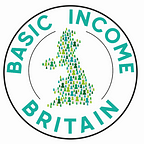“Giving people unconditional money will only put them off working”
Evidence collected from basic income trials has not shown a rise in couch potatoes
It is almost perplexing how much of a battle it can be convincing someone that they, and everyone they care about, should be entitled to a lump sum of money.
Naturally it is asked, why would you ever bother working? Surely if you are given enough money to live off, you are going to be far less inclined to get out of bed, make the commute to work and put up with your employer.
Former skills minister, Nick Boles, has recently objected to UBI on moral grounds. “Man is hard-wired to work”, going onto write, “we should not be trying to create a world in which most people do not feel the need to work.”
It might be surprising, but evidence collected from basic income trials has not revealed a rise in couch potatoes and holiday goers.
In the most extensive basic income experiment to date, the poorest residents of Dauphin, a small town in Canada, received unconditional money between 1974–79. They were not told how they should spend the money, nor was the amount they were receiving dependent on whether they were in work or not.
Economist, Evelyn Forget, analysed the Dauphin experiment in 2011. The only recipients found to have decreased their work rate were new mothers, who spent more time with their children, and teenagers, who spent more time in education.
Public health improved, graduation rates spiked and one thousand Dauphin families who fell below the poverty line had an income to live off. While Nick Boles described UBI as “immoral”, Forget entitled her study ‘The Town with No Poverty’.
Yet you might find yourself thinking, surely recipients are not going to quit their day job when they know they are part of a trial that has an end date?
Well since January 2017, Finland rolled out a two year basic income experiment for solely the unemployed. Currently, 2,000 jobless people aged between 25 to 58 are being paid £475 a month. Like in Dauphin, whatever recipients do with their money is totally unconditional.
While the conclusions are to be published next year after the trial has ended, even the early indications have shown less stress, better work incentives and more opportunity to pursue business ideas.
Despite Nick Boles claims, when used basic income has not put people off work. Instead, jobless receivers have been motivated to build on their income and take entrepreneurial risks.
In 2008, the Ugandan government ran a human investment programme. One group received $380, the equivalent to an annual wage, and the other received nothing. The group who received the funds were again free to spend the money how they wished.
Within two years they were found to be 65% more likely to practice a skilled trade and were working 17 more hours on average than those who did not receive the income.
Four years on, those who received $380 had a 41% increase in their earnings. When given the freedom to invest in themselves and their future, recipients largely took the chance with both hands.
No serious basic income advocate is calling for a six-figure salary to be placed into everyone’s bank account. It is not about making people so rich that they never feel the need to work again. Rather than “creating a world in which most people do not feel the need to work”, basic income is a pro-work human investment. Supporting people in low-paid insecure work, students staying in education to boost their future job prospects and freeing up budding entrepreneurs.
So yes, “man is hard-wired to work”, which is why I back basic income.
Luke Brett, editor of Basic Income Britain.
